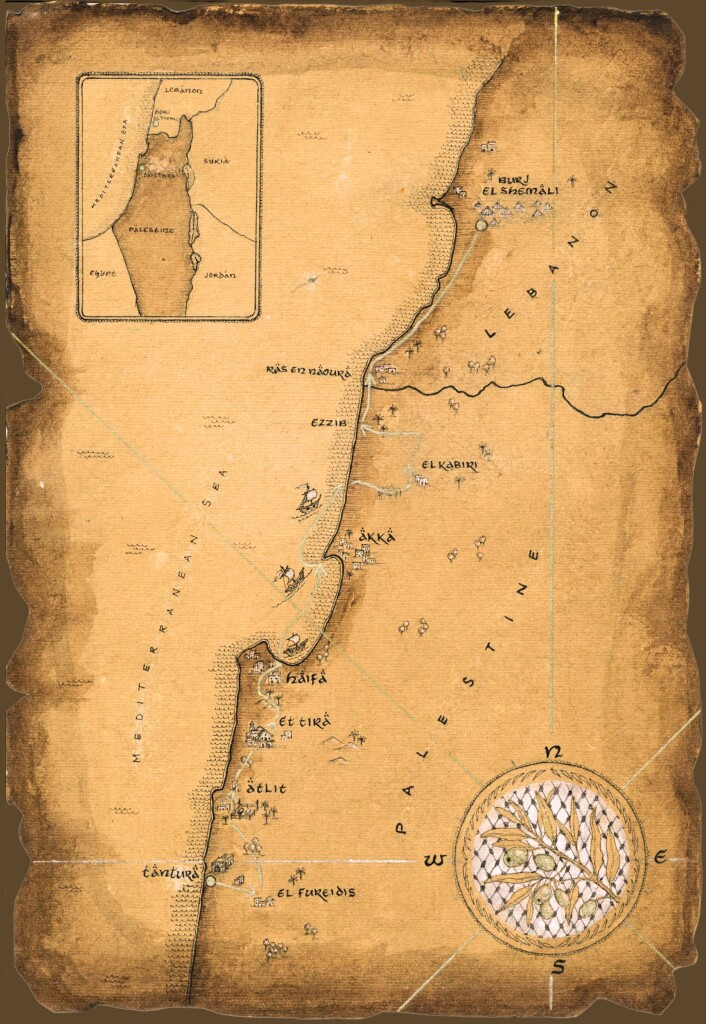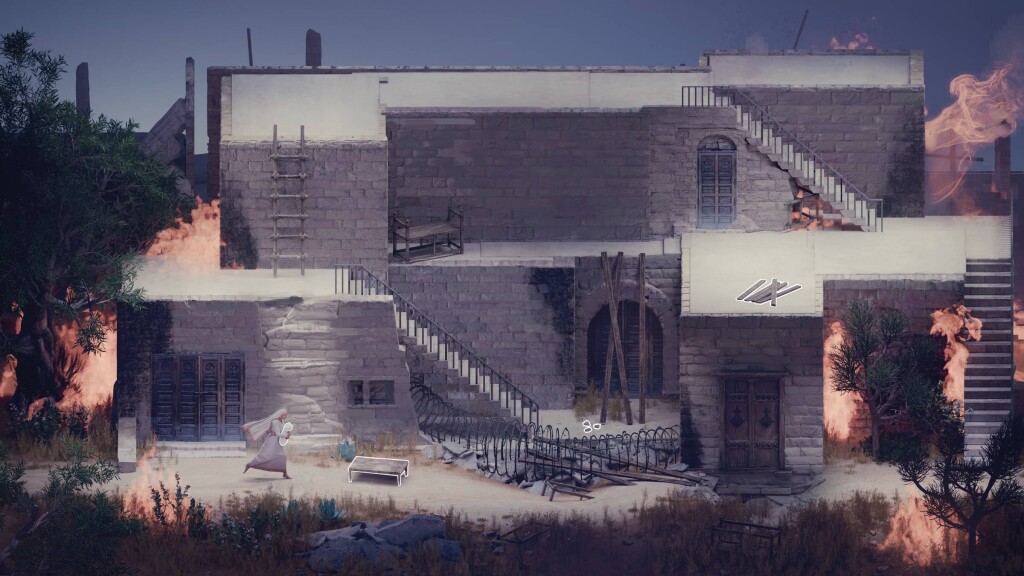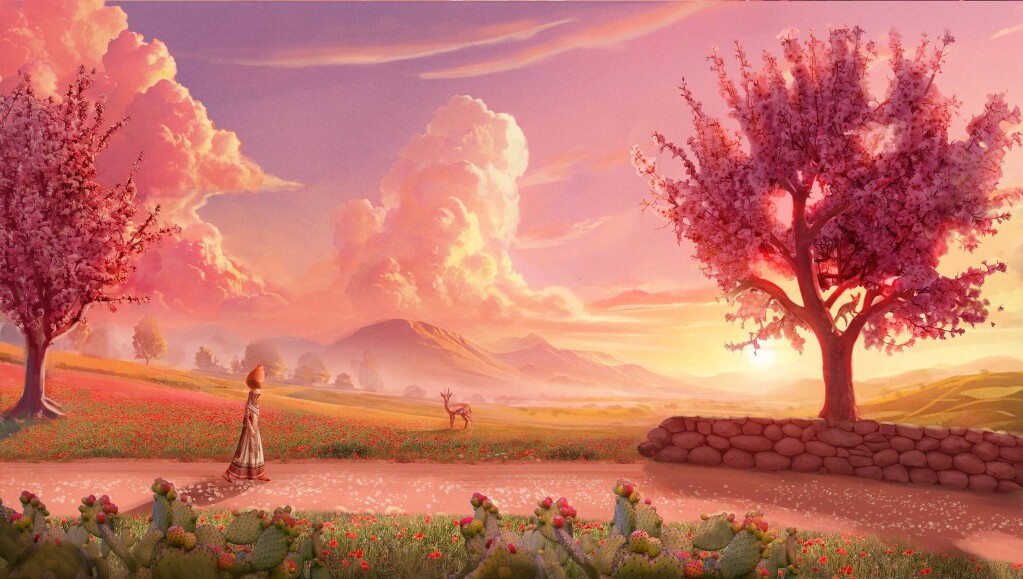Games weave art and empathy in unique ways: gaming is at its heart a medium about perspective and action. The story of developer Rasheed Abueideh is a model for telling stories and for what happens when people step up and provide support. When conventional publishers deemed a title about the Nakba “too controversial,” people responded, from the individuals in the games community to journalists. That campaign will close later today, but it’s already exceeded its $200,000 USD goal.
The project will tell the story of Omm, a moving translation of oral folk tradition to the medium of a game, while remaining rooted in historical accuracy. The game will follow this mother who grabs a pillow instead of a child in parallel worlds of nightmares, trauma, and two decades of Palestinian history as she makes her way to Lebanon; as the developers label it, a stealth adventure game about “a land full of people being made into a people without land.”

It’s difficult to do work like this on most crowdfunding platforms, and there are additional challenges to even access the money. So they’re on the US-founded, international Muslim crowdfunding campaign LaunchGood:
Dreams on a Pillow – a videogame experience about the 1948 Nakba, based on a true story [LaunchGood campaign, expires January 13]
There’s still time to add your support today – the goal only covered about 50% of their anticipated costs – and reserve copies of the game, etc.


Dreams on a Pillow is being developed inside the occupied West Bank. I’ve already seen that music making and production, without the complex project management of something like a game, faces massive challenges there. Even just psychologically continuing is difficult. So it’s hard to imagine game development, least of all a Nakba-themed title. Abueideh described that in a terrific interview for Rock Paper Shotgun (still among the best places for independent games journalism):
“It’s very hard, daily life. Just taking your kids to the school is a big deal because you don’t know which road you should take. You don’t know where the checkpoints are and if they’re going to block the roads today or not. On a daily basis, there are multiple attacks in different villages in cities by the soldiers or by the settlers. Burning houses. Cutting trees and burning trees. Destroying the main roads. So it’s kind of the daily hustle that we live in.”
Dreams On A Pillow’s developer on the challenges of making games from the West Bank
This is the second game from Abueideh. The first one, Liyla and the Shadows of War, I got to know through A MAZE. festival here in Berlin. It’s chilling to look back at it now, as it was meant to tell the story of the attacks on Gaza in 2014. Here’s what the developer wrote in 2016:
I’m a father of two kids, I can’t imagine my life without them, but in Palestine nobody is safe.
When the war started in Gaza and i saw the images of the killed kids in their parents hands I was shocked, I had a weird feeling, it’s a combination of sadness, fear, empathy and anger, All what i was thinking of is “what if this happened to me”.
I have chosen to share those feelings in a game to deliver a message of how we are living as Palestinians under this situation
It’s Not Just a Game, It’s a case and call for help.
From GDC:
While you’re waiting on this one, you can play Liyla and the Shadows of War now (and spread it to other people you know). It’s available for on Windows we well as on Android and iOS:
https://rasheedabueideh.itch.io/liyla-and-the-shadows-of-war
In 2016, Apple had tried to suppress that game – censorship through reclassification:
Apple says game about Palestinian child isn’t a game [Wired]
They relented, presumably not incidentally, after widespread press coverage. (That worries me, too, as news journalism continues to see resource starvation.) On the conclusion to the story, also from 2016:
Apple’s rules for video games are still causing problems in the App Store [The Verge]
The wonderful composer and sound designer Sami El-Enany talks to the game developer; this is a must-watch interview (with Sami’s gorgeous music as accompaniment), on the platform Palestine Deep Dive:
Here’s Sami’s complete podcast interview with Rasheed:
Game Design in the Shadow of Genocide | Rasheed Abueideh
I regularly cover gaming on CDM, as it’s fundamental to what I hope this site is about, but this has implications beyond just gaming. The fact is that projects require resources, and traditional routes, as he describes in the documentation for the crowdfunding project, are closed. So this is a huge win, and that speaks to the support of game journalists, the gaming community, and individuals. (There’s not information on music, and I hope we get to learn about that aspect of the project, too.)
Here’s Polygon, noting the developers reaching that milestone:
Historical Palestinian game Dreams on a Pillow surpasses funding goal
And the message from the developer:
I hope to follow this one, especially having had the connection to A MAZE. and my friends and partners there on that team. (Side note: yes, it’s Berlin. Yes, it’s Germany. Yes, if you feature a Palestinian game, you’ll hear about it. And they did it anyway – which is also proof that, much as we talk about repression and criticism, that doesn’t mean you have to cave.)
It also reminds us that art doesn’t have to be apolitical and toothless; it can have a strong message and capture an emotional reality in ways unique to each medium.
Even in this time of hopelessness, Dreams on a Pillow is a challenge – to us as players, as supporters, and as makers and artists. It’s a call to make new art, and find new ways of supporting it – and a reminder that lives, and children, are at stake.